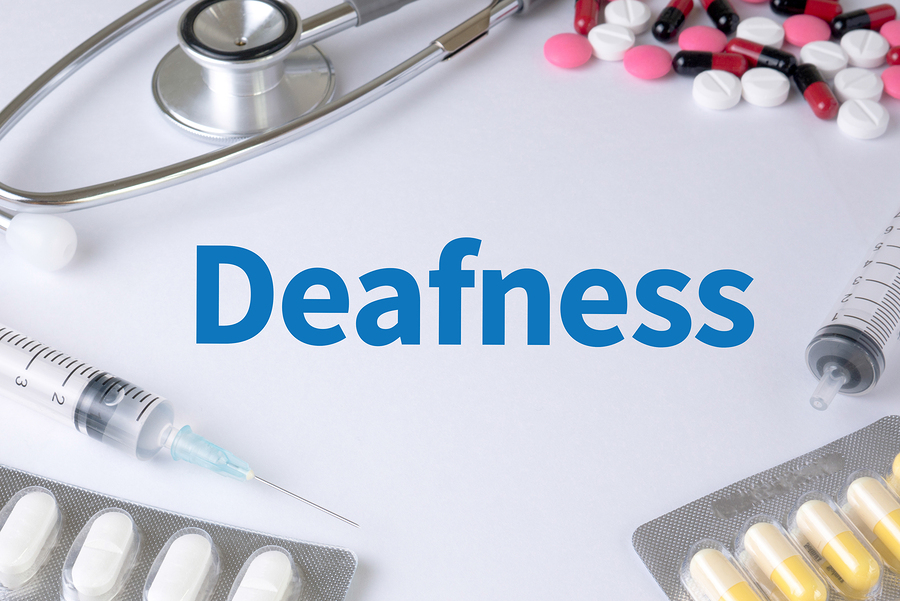There is opioid addiction and overdose crisis in the United States. It’s an epidemic that has reached unprecedented proportions, and its impact affects all ranges of the socio-economic and demographic scale.
The consequences of opioid abuse and dependency, including social instability and physical and mental harm, can be dire. One potential consequence, in particular, remains, for lack of a better term, largely unheard of.
It’s permanent hearing loss, and its incidence is expected to rise as the rates of opioid abuse continues to grow. The question: ‘can opioid use cause hearing loss’ is discussed below.
Hearing Deafness and Loss: A “Silent” Adverse Effect of Opioid Abuse Disorder
In the 1990s, pharmaceutical companies assured physicians that opioid drugs were safe and non-addictive. This reassurance, along with “aggressive” marketing campaigns that allegedly included kickbacks to doctors, led to a rampant flood of opioids into American communities. These factors also paved the way for misuse and abuse of the drug in its prescription and non-prescription forms.
Since that time, researchers, physicians, and other healthcare providers have noticed a rising incidence of hearing loss in people misusing opioids. This hearing loss is specifically associated with opioid medications containing acetaminophen (common brand name Tylenol).
Hydrocodone/paracetamol, best known by the popular brand name Vicodin, is a leading culprit. Cases have also been reported after using acetaminophen plus morphine, heroin, methadone, oxycodone, and propoxyphene.
Who Blew the Whistle? Tracing Back the Link Between Opioid Use Disorder and Hearing Loss
Among the first to identify this link between opioids and hearing loss were researchers from the House Ear Institute in Los Angeles, who also pioneered cochlear implants’ technology. Other physicians and scientists from around the country have reported similar findings. However, the theory is not without its critics.
To be clear, a causal link has yet to be proven. That is, it’s not possible to definitively claim opioid abuse causes hearing loss. However, a correlation seems evident—and it’s likely the condition is being underreported.
For instance, doctors who meet patients complaining about hearing loss may not connect their symptoms and opioid use simply because these physicians are not aware of the possible connection. Additionally, it’s not unusual for patients to underreport (or fail to understand) their opioid misuse. In such cases, doctors may be completely unaware of a potential confounding factor.
In either case, raising awareness and expanding the research is key since it’s likely that earlier detection may (although not definitely) improve outcomes.
How Opioid Drugs May Contribute to Hearing Issues
Sufficient evidence shows that hydrocodone and other opioid painkillers are powerful and potentially highly addictive. This addictive quality, many researchers and doctors believe, is the driving factor behind hearing loss.
While the exact mechanism of opioid-induced hearing loss is not fully clear, several theories exist.
At its most basic level, people who become addicted to opioids by definition must take more and more of the drug to overcome drug tolerance, avoid drug withdrawal, and achieve their desired effect. This means patients frequently fill their prescriptions, take higher doses, and/or supplement with illicit drugs to fulfill their needs.
Consequently, consuming acetaminophen-containing opioids beyond the recommended amount means that patients are consuming acetaminophen beyond the recommended amount, as well. This exposes patients to acetaminophen levels that are poisonous to the ear and/or cause ischemia (reduced blood flow) in arteries that supply oxygen to inner ear structures.
It’s already known that high doses of acetaminophen can cause serious or even fatal liver damage, an issue acknowledged by the Food and Drug Administration (FDA). The House Ear Institute subsequently alerted the FDA about the potential increased risk of hearing loss due to this drug via the mechanisms just described. Presently, the FDA’s official stance appears that hearing loss is a rare issue related to overt drug misuse.
Other theories include genetic abnormalities of liver enzymes responsible for metabolizing these drugs and direct effects of opioid receptors within the ear.
The Prognosis for People with Opioid-Related Hearing Loss
Hearing loss associated with opioid misuse and abuse tends to be sudden, rapid in its progression, and bilateral (affecting both ears). It seems to be particularly problematic among younger patients. Vertigo (dizziness) and tinnitus (ringing in the ears) are often co-reported.
More research is needed to clarify the prognosis for these individuals. Recovery is possible in some cases, but permanent hearing loss or even complete deafness is being reported.
Conclusion
Disabling hearing loss is on the rise, according to the World Health Organization. Could the increasing prevalence of opioid abuse be a contributing factor? Research is ongoing regarding the question ‘can opioid use cause hearing loss,’ but early indicators suggest that this is possible.
Prescribing physicians are responsible for educating patients about the dangers associated with opioid use. Individuals can also protect their health by learning about opioids, asking for non-opioid medications, and asking for medication-free options for their pain management plans.
Lastly, anyone taking opioids who experiences hearing problems should consult with their doctor as soon as possible. And if you believe you or a loved one is suffering from Opioid Use Disorder and needs professional help, call the Waismann Method team today.














